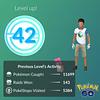Take a photo of a barcode or cover
This book was pretty sad for a vacation read, but what can you do? The story was interesting and certainly exposed some history I wasn't terribly familiar with. Overall, not particularly uplifting...
Fine, quick, interesting romantic read. Not memorable but neither is it boring. Based in Seattle International District during World War II within the Chinese and Japanese American communities. It deals with racism, patriotism and culture in a very fair manner.
Thing one. I came to this book not through some bestseller list, personal recommendation or GoodReads Must Read checklist. I was actually searching for an old movie called "The Sweet and the Bitter," written and directed by Aussie James Clavell (yep, THAT James Clavell, bestselling author of Shogun, Tai-Pan, etc.) The script/movie for this 1967 movie (also known as Savage Justice…ugh) deals with a Japanese-American woman living in post-WW2 US. The description on imdb is a "straight to video" tagline; "A Japanese girl arrives in a Canadian coastal town - her secret reason is to avenge her father's death in an internment camp during the war."
Here's another; "Sweeping tale of revenge and forbidden love, written and directed by "Shogun" author James Clavell, centers on a Japanese woman who travels to western Canada for retribution against the businessman who mistreated and ruined her father, a fisherman there, during World War II."
Thing two. Imagine my surprise when, during my search, I was Google-linked to this wonderful book. Upon reading the synopsis, I Amazon-Buy-Now'd and Prime had it in my hands two days later.
Thing three. Starting a new list called, "Books my daughters need to read in their lifetime in an effort to understand their father a little bit better and to be closer to their Batchan (grandmother)." This one goes on that list.
Thing four. Almost stopped reading this book at the end of the Tickets (1986) chapter, page 384. Even after 384 pages, I hadn't yet trusted Ford to "do the right thing" with his ending.
Shame on me, I know.
In my defense, I was torn between wanting to see a reunion between H and K and just leaving the past to the past and being satisfied with lives well lived. That's the JA part of me coming out.
No spoilers here, but I was glad I did choose to finish it (after a good nights sleep) and spent the first half hour upon waking this morning with a cup of coffee, two pieces of peanut butter on rye toast and the last 9 pages with Henry and Keiko.
Here's another; "Sweeping tale of revenge and forbidden love, written and directed by "Shogun" author James Clavell, centers on a Japanese woman who travels to western Canada for retribution against the businessman who mistreated and ruined her father, a fisherman there, during World War II."
Thing two. Imagine my surprise when, during my search, I was Google-linked to this wonderful book. Upon reading the synopsis, I Amazon-Buy-Now'd and Prime had it in my hands two days later.
Thing three. Starting a new list called, "Books my daughters need to read in their lifetime in an effort to understand their father a little bit better and to be closer to their Batchan (grandmother)." This one goes on that list.
Thing four. Almost stopped reading this book at the end of the Tickets (1986) chapter, page 384. Even after 384 pages, I hadn't yet trusted Ford to "do the right thing" with his ending.
Shame on me, I know.
In my defense, I was torn between wanting to see a reunion between H and K and just leaving the past to the past and being satisfied with lives well lived. That's the JA part of me coming out.
No spoilers here, but I was glad I did choose to finish it (after a good nights sleep) and spent the first half hour upon waking this morning with a cup of coffee, two pieces of peanut butter on rye toast and the last 9 pages with Henry and Keiko.
Hotel on the Corner of Bitter and Sweet is a novel of world war two as experienced by Henry, a Chinese-American boy, and Keiko, his Japanese-American first love. IN 1942 Seatle, Henry and his family live in the Chinatown section of the International District. Keiko and her family live in Nihonmachi, the Japanese section. Henry's father, born in China, is a fierce Chinese nationalist, with a hatred of all things Japanese because of their invasion of China. He tries to instill this hatred in Henry, but all Henry can see is how his obsession with the war in China keeps them from developing a real relationship. Keiko is a second generation American who doesn't even speak Japanese. Henry and Keiko meet and strike up their friendship as the only two Asian students at an elite prep school. Because they are on scholarship, they are made to work in the kitchen, serving the white students their lunch. Their shared "otherness" bonds them in a way that simple friendship can't describe. Henry is devastated when the order comes from President Roosevelt to inter all Japanese-American or not-in camps well inland. Henry promises to wait for Keiko, but his father, who mostly disowned Henry after discovering he had a Japanese friend, intercepts Henry's letters to Keiko, and her letters from the camp, and they grow apart. In 1986, Henry, now in his 50s, finds himself drawn back to the Panama Hotel, where the discovery of items left behind by Japanese families on their way to internment camps brings his old feelings to the surface.
I'm feeling lukewarm about this book. On the one hand, it brings a new perspective to the history of Japanese internment, with its focus on the interplay between Chinese and Japanese, and how Chinese American's had to identify themselves so as not to be mistaken for Japanese, since most Americans of the time (and probably still) couldn't or didn't care to understand the differences. On the other hand, it felt like stories I had read before, most notably Snow Falling on Cedars, about a white boy falling in live with a Japanese girl, and the ways that the community responded to the internment of their neighbors.
That said, I was moved by the story, and horrified as always by the way that fear and false patriotism were used to justify the blatant racism of the era. Since 9-11 I have watched in dismay the way that Muslims have been treated in some parts if the country, and I sometimes think it is only our shameful history of Japanese internment that has kept detention centers and mass deportation from becoming a reality. I don't know whether this particular novel does much to add to that conversation that has not already been said, but it was an enjoyable read.
I'm feeling lukewarm about this book. On the one hand, it brings a new perspective to the history of Japanese internment, with its focus on the interplay between Chinese and Japanese, and how Chinese American's had to identify themselves so as not to be mistaken for Japanese, since most Americans of the time (and probably still) couldn't or didn't care to understand the differences. On the other hand, it felt like stories I had read before, most notably Snow Falling on Cedars, about a white boy falling in live with a Japanese girl, and the ways that the community responded to the internment of their neighbors.
That said, I was moved by the story, and horrified as always by the way that fear and false patriotism were used to justify the blatant racism of the era. Since 9-11 I have watched in dismay the way that Muslims have been treated in some parts if the country, and I sometimes think it is only our shameful history of Japanese internment that has kept detention centers and mass deportation from becoming a reality. I don't know whether this particular novel does much to add to that conversation that has not already been said, but it was an enjoyable read.
Sweet love story. History of Japanese internment interesting and sadly true.
emotional
hopeful
reflective
medium-paced
Strong character development:
Yes
Loveable characters:
Yes
Diverse cast of characters:
Yes
5/5
Such a cute story and I loved the tie into the culture. It felt like Romeo and Juliet but actually healthy.
Such a cute story and I loved the tie into the culture. It felt like Romeo and Juliet but actually healthy.
I read this as part of One Book One County for my local library system.
Bitter and Sweet definitely describes this book. It had sweet moments of first love and feelings. It had sorrowful moments of loss and betrayal. The descriptions of feelings are true and don't feel cloying, but does seem to be a little older than these kids are aged - seemed more appropriate for 16-17 year olds rather than 12-13 year olds.
I like the confusion around the internment camps. It's not a subject I'm very familiar with, so I don't know how accurate it was, but while presented in a straight-forward way, I still felt the horror of the idea and couldn't really believe that it had happened.
The description on 1986 felt all wrong. Chat rooms, CDs, a couple of other mentions, that felt anachronistic; even though they existed, they weren't mainstream enough that it felt like the right thing to have been used. It was enough that it would jar me out of the story occasionally.
Bitter and Sweet definitely describes this book. It had sweet moments of first love and feelings. It had sorrowful moments of loss and betrayal. The descriptions of feelings are true and don't feel cloying, but does seem to be a little older than these kids are aged - seemed more appropriate for 16-17 year olds rather than 12-13 year olds.
I like the confusion around the internment camps. It's not a subject I'm very familiar with, so I don't know how accurate it was, but while presented in a straight-forward way, I still felt the horror of the idea and couldn't really believe that it had happened.
The description on 1986 felt all wrong. Chat rooms, CDs, a couple of other mentions, that felt anachronistic; even though they existed, they weren't mainstream enough that it felt like the right thing to have been used. It was enough that it would jar me out of the story occasionally.
LOVED, LOVED, LOVED! This story was beautifully written, despite the sad events that surround the story. I even found myself googling images of the Panama Hotel after I finished it. For me it was reminder of the strength we can find in friendships and the impact our relationships with our parents can have on our lives.





